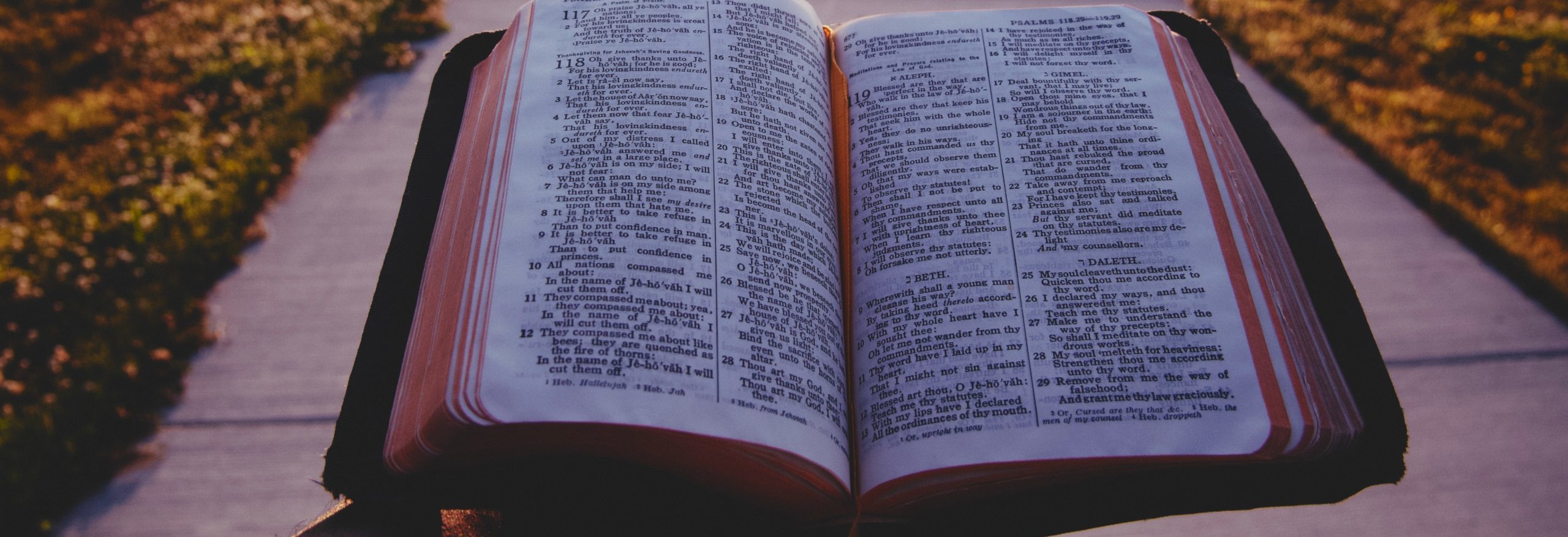
Is There Such a Thing as Bad Luck?
Today is Friday the 13th. Supposedly an unlucky day. Friday the 13th has inspired a novel, a series of short stories, a horror film franchise, and even a late 19th-century secret society. But is it really unlucky? Should we feel nervous or unlucky on any particular day? And, most importantly, what does the Bible say?
Does “bad luck” really exist? Is bad luck a real thing? No, there is no such thing as bad luck, it does not exist. There is no data of any kind to support any such claim and there are no religious ideas that substantiate the concept of bad luck. Sometimes human beings fabricate concepts like bad luck as an attempt to justify or explain the bad things that happen to human beings.
Sometimes people equate religious ideas such as karma, or the principle of sowing-and-reaping, with bad luck. However, karma and bad luck are not the same. Ideas like karma claim that humans rightly and predictably receive rewards or retribution in accordance with their choices. They bring things upon themselves. It’s not luck or chance or random at all.
While there’s no reason to believe in bad luck, that does not stop people from embracing all sorts of superstitions.
Some people are concerned that they’ll get bad luck for breaking a mirror or for walking under a ladder or for crossing a black cat.
Some people do things like toss a bit of salt over their shoulder after accidentally knocking over a salt-shaker to avoid bad luck. Or they feel obligated to duplicate chain letters to avoid bad luck. Or how about sports fans that insist on wearing a particular outfit or sitting in a particular seat because it’ll supposedly give their favorite team good luck.
But these superstitions do not actually govern the outcomes of the universe. However, the Bible makes clear that God governs the events of the natural world, and we can trust him!

Where Did Friday the 13th Come From?
Historians are divided as to the origins of Friday the 13th. Some historians say it comes from the story of the Last Supper, which had 13 attendees (Jesus and his 12 disciples). And of course, Jesus died on a Friday. Therefore, the combination of Friday and 13 is supposedly bad.
Some historians have noted that Friday 13th may have actually originated in Norse mythology. The legend is that Loki (yes, that Loki), the god of mischief, crashed a banquet where 12 other gods were eating, which then brought the number of gods in attendance to 13. Loki caused a chaotic fight and in the mayhem Balder, the god of light and goodness, was unintentionally killed by his brother Hodr, the blind god.
Other historians have also pointed out that the number 13 is curiously omitted from the Code of Hammurabi, leading some observers to believe that the perceived unluckiness of the number 13 dates back to at least the eighteenth century B.C.
The supposed unluckiness of the number 13 has caused many tall buildings across North America to avoid having a 13th floor. According to a Gallup Poll, 13% of people say they would feel uncomfortable staying on the 13th floor of a hotel. Yes, 13% don’t want to stay on the 13th. Irony.
Whatever the origins of these Friday the 13th superstitions, it’s interesting to me that, even in our post-modern secular progressive age, there are so many people that say they feel superstitious about certain things… or maybe feel a “little stitious” (as Michael Scott might say).

What Does the Bible Say About Bad Luck?
It seems that all superstitions (and conversations about “luck”) have at least one thing in common: People are concerned with the future. Many human beings are fascinated and consumed with the idea of knowing and controlling the future, continually doing things that might change the trajectory of their lives.
But Humans do not have nearly as much control as they seem to think. The Bible makes it clear that God is in control.
“It is the Lord who goes before you. He will be with you; he will not leave you or forsake you. Do not fear or be dismayed” (Dt. 31:8 ESV).
“Who else has held the oceans in his hand?
Who has measured off the heavens with his fingers?
Who else knows the weight of the earth
or has weighed the mountains and hills on a scale?” (Isaiah 40:12 ESV).
“The earth is the Lord’s, and everything in it. The world and all its people belong to him. For he laid the earth’s foundation on the seas and built it on the ocean depths” (Psalm 24: 1-2 NLT).
Christians may not know 100% of what our days shall include, but we there’s no need for us to live in uncertainty. We believers know the end of the story. The Bible tells us our final destination!
We may not have the precise blueprint that we often want, but we do indeed know what God is ultimately up to in our lives: We are being “conformed” by God “to the image of his Son” (Rom. 8:29 ESV).
Everything that happens in this life will be utilized by our good Father. The happenings of this age are the instruments God uses to mold us into being more like Jesus.
Every single thing in your life, good and bad, exists because God has ordained it to exist in your life. And you can be sure that if God has ordained it to exist in your life, then he will most certainly utilize it for your good. We never need to be concerned that we might unintentionally bring bad luck upon ourselves.
If there’s something that appears to be bad in our lives, it is not because we broke a mirror or broke some rule about how we navigate walking around cats. If there is something painful in your life, it is because the sovereign God of the universe determined for that particular painful thing to be in your life. And if God has determined for that painful thing to exist in your life, it’s because he has a good purpose for it.
Sometimes God allows us to face painful situations because he knows that they will strengthen us and prepare us for future ministry tasks. Sometimes we face painful situations because God intends to demonstrate his grace and mercy through us to other people watching—believers and unbelievers.
In other instances we face painful situations because God is allowing us to suffer the consequences of our own sin, as a means of sanctifying us. We rarely know precisely why God has ordained pain in our lives, but we do know that it’s never in vain.
In the Bible we read, “The lot is cast into the lap, but its every decision is from the Lord” (Prov. 16:33 ESV). Another English translation renders it: “We may throw the dice, but the Lord determines how they fall” (NLT).
Even the things that appear to be the most random things in our lives, like the roll of the dice, are not random at all. God is in control of everything!

What To Do When Face “Bad Luck”?
Whenever we face difficulties in our lives, we must remember it’s not because of bad luck, there’s no such thing.
If something bad happens, it’s because God determined to allow that bad thing in your life. And if God allowed it, it’s because he has a purpose for that bad thing. Nothing is random or just happenstance. Often God is working in our lives in ways we cannot see or understand.
The great 19th century Baptist preacher Charles Spurgeon put it this way:
“I believe that every particle of dust that dances in the sunbeam does not move an atom more or less than God wishes—that every particle of spray that dashes against the steamboat has its orbit, as well as the sun in the heavens—that the chaff from the hand of the winnower is steered as the stars in their courses. The creeping of an aphid over the rosebud is as much fixed as the march of the devastating pestilence—the fall of leaves from a poplar is as fully ordained as the tumbling of an avalanche.”
Pastor John Piper discussed the sentiment of this Spurgeon quote in a video called “Has God predetermined every detail in the universe, including sin”:
Recently, I heard a preacher say, “Today you have sorrow, today you have pain, today you have worry, today you have doubt, today you have enemies, and one day your body will be laid in the dust but you, my friends, will not go down with it, for your God will raise you up.”
Unless Jesus returns very soon, of course, we are all going to die. In all likelihood, there will be a day when your body is buried in the ground. But that is not the end of the story, not for the Christian.
Whenever we observe superstitions in our society, it is an opportunity for us to pause and remind ourselves that there is no need for us to be afraid of bad luck or randomness. And we do not need attempt to control our lives, because God is in control. Nothing comes our way except through the hands of our loving heavenly Father.

Pastoral Exhortation
If you are a believer in Jesus, your Father in heaven will raise you up. As the apostle Paul said, we shall be “raised imperishable” (1 Cor. 15:52 ESV). You know the end of the story. God is in control of your destiny, and he’s got good thoughts for you; he will be looking out for you.
If you are not a believer in Jesus, I encourage you to place your trust in Christ. The Bible says:
“If you confess with your mouth that Jesus is Lord and believe in your heart that God raised him from the dead, you will be saved” (ESV).
Trust in Jesus, believe in him, and you will be in relationship with God, and you’ll be able to trust your future to him.
As believers, no matter what we face in this life, we know that Jesus will hold us tight. He said: “I give them eternal life, and they will never perish, and no one will snatch them out of my hand. My Father, who has given them to me, is greater than all, and no one is able to snatch them out of the Father’s hand” (Jn. 10:28-29 ESV).
We do not need to rely upon luck or chance. God will guard us and keep us (Jd. 24-25), and God himself will finish the great work that he started in us (Phil. 1:6). This is not rooted in bad luck or good luck. It’s rooted in the mercy and grace and kindness of the sovereign King!
Praise be to God!
Image of “Loki” courtesy of DoG Tech, LLC
Kenneth E. Ortiz (Th.M.) is Lead Pastor of Horizon City Church and Ph.D. Candidate at Midwestern Seminary. He has 15+ years of vocational ministry experience. Kenneth previously served as a professor at Bethlehem College and adjunct faculty at Spurgeon College. Kenneth lives in Minneola, FL with his wife Malaina, they have three kids.


